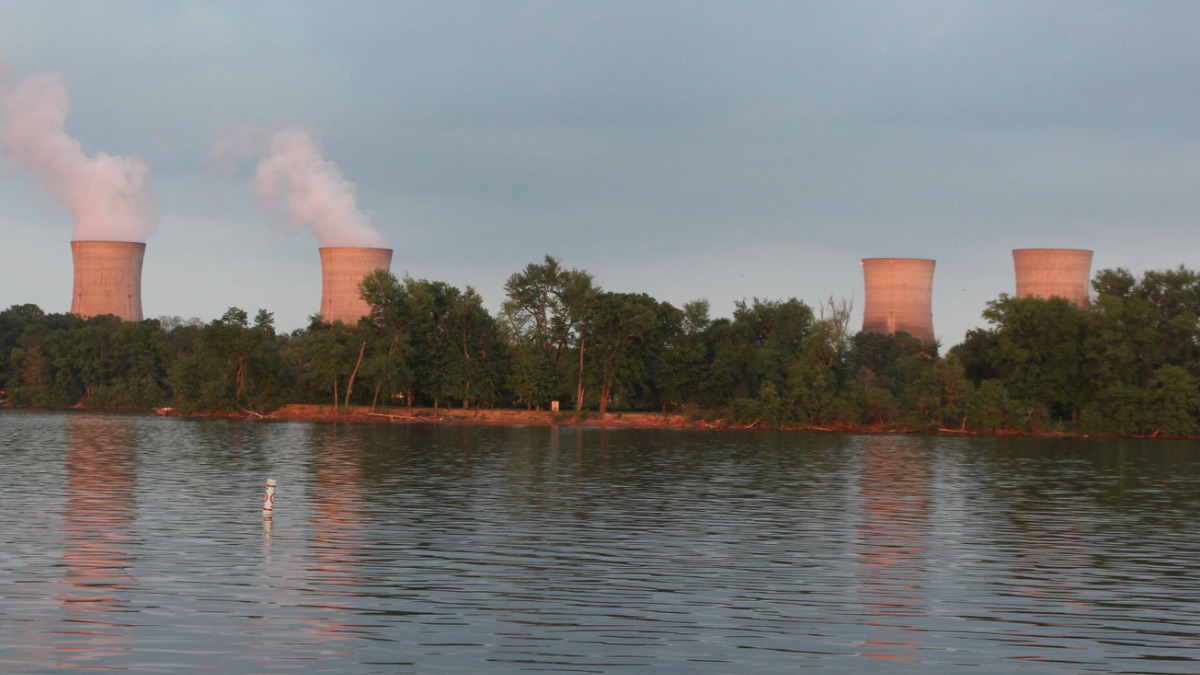A social media challenge that went around not long ago asked people “what three things will you do to combat climate change?” If you google the phrase, you get tons of results. Here are three suggestions--they are by no means an exhaustive list, but I think these would all be positive steps.
1. Get out of the way of nuclear energy
The climate is changing because we’re turning carbon dioxide currently stored underground into carbon dioxide in the atmosphere. Even advances like electric cars aren’t going to do that much because they just move the emissions from the tailpipes of the cars on the road to the smokestacks of coal-burning power plants.
We could avoid a lot of these emissions by removing barriers to more widespread adoption of nuclear energy. Technological advances have made reactors far safer and, importantly, have made it easy to store waste safely, as well. Nuclear is also far safer per unit of energy generated: the number of deaths per kilowatt of nuclear energy is a fraction of a fraction of the number of deaths per kilowatt of other energy sources, particularly coal.
2. Stop encouraging and subsidizing rural living
In his 2011 book Triumph of the City: How Our Greatest Invention Makes Us Richer, Smarter, and Happier, the economist Edward Glaeser asks people to consider who lived more sustainably: urbanites or Henry David Thoreau at Walden Pond (see also his 2011 article “New Land of Opportunity” here)? Compared to the urban Bostonian Thoreau’s adventures in the rural idyll were an environmental disaster (in part because he burned a ton of forestland). Urban environmental footprints are far smaller than rural environmental footprints for a whole host of reasons, and by using tax and regulatory policy to encourage people to move to or stay in rural areas we are actually subsidizing climate change rather than fighting it. Policy should be aimed at moving under-served populations to services like health care, transportation, and high-speed internet rather than moving these services to under-served populations. If someone wants to live next to Walden Pond or in rural Alabama, I certainly won’t object; however, I will expect them to bear the full cost of their lifestyle choices. And that brings us to the last suggestion.
3. Stop discouraging new development—especially of housing—in urban areas, and really especially in places with moderate temperatures
Regulations making it prohibitively expensive to build new housing in places like the Bay Area and the northeast corridor are turning these regions into private enclaves for the rich and powerful. The climate effect is that we get less density and considerable misallocation of land that would be better used for residential, industrial, and commercial purposes. Urban growth boundaries and greenbelts and strict regulations might look environmentally friendly, but I think this is an illusion. “Greenbelts” around cities that are there to preserve farm and forest lands have the unintended consequences of raising housing prices within the green belt and potentially pushing commuters beyond the greenbelt where they then drive farther—from Guelph to Toronto, for example. When you make something more expensive, people search for substitutes, and as Glaeser points out, housing in cities like Houston, Dallas, and Atlanta where air conditioning is practically a necessity is a substitute for housing in cities like San Francisco where people regularly do without it. NIMBY--Not In My Back Yard--has persisted for far too long. Let’s say “YIMBY” instead.
We can choose how big a problem we want to let climate change be. By making these changes—among others, obviously—we can slow its pace and mitigate some of its effects.









